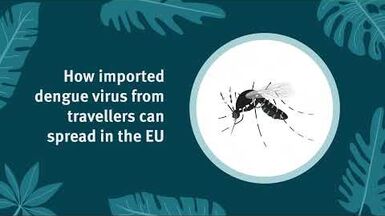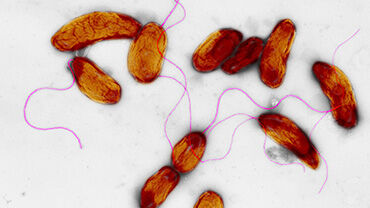Cyclone Idai: ECDC joins emergency response as more cases of cholera and waterborne diseases expected
Thousands of people are currently displaced in Mozambique, Malawi and Zimbabwe as a consequence of the tropical cyclone Idai, which hit southern Africa on 15 March 2019. The cyclone caused hundreds of fatalities so far and an upsurge of infectious diseases such as cholera.
According to the World Health Organization (WHO) and as of 30 March, more than 500 deaths have been reported in Mozambique, 172 in Zimbabwe and 59 in Malawi as a result of this cyclone. Cholera cases continue to rise: over 1428 cases and 1 death reported in Mozambique, with 89 people still in treatment centres, according to the United Nations Office for the Coordination of Humanitarian Affairs (OCHA). UN OCHA estimates that 1.6 million people have been affected by cyclone Idai in the three countries, as thousands of houses have been destroyed or flooded.
Heavy rains, floods, the shortage of potable water, disruption of healthcare services and overcrowding are major factors known to increase the risk of waterborne infections such as cholera and typhoid, but also malaria and measles. The areas affected by the cyclone will likely experience infectious disease outbreaks and the number of related deaths is expected to increase in the coming days. A cholera vaccination campaign with 900 000 doses of oral vaccines from the global emergency stockpile has already started this week.
ECDC has deployed an epidemiologist under the EU Civil Protection Mechanism to assist in the emergency response in Mozambique. The mission will support the humanitarian response with public health assessments and epidemiological advice. ECDC is also producing a risk assessment on the health risks related to this event.
Travel to affected countries
During the winter and spring period, 12000-14000 travellers a month travel from EU/EEA countries to Malawi, Mozambique and Zimbabwe, mainly from the UK and Portugal. In this context, the risk of cholera infection in travellers remains low. However, the likelihood of sporadic importation of cases to the EU/EEA may increase. Travellers to the countries affected by cyclone Idai should seek advice from travel health clinics to assess their personal risk and apply precautionary sanitary and hygiene measures to prevent infections. These include drinking bottled water or water treated with chlorine, carefully washing fruit and vegetables with bottled or chlorinated water before consumption, regularly washing hands with soap, eating thoroughly cooked food and avoiding consumption of raw seafood products. According to the WHO, vaccination should be considered for emergency and relief workers, who are at higher risk and likely to be directly exposed.






